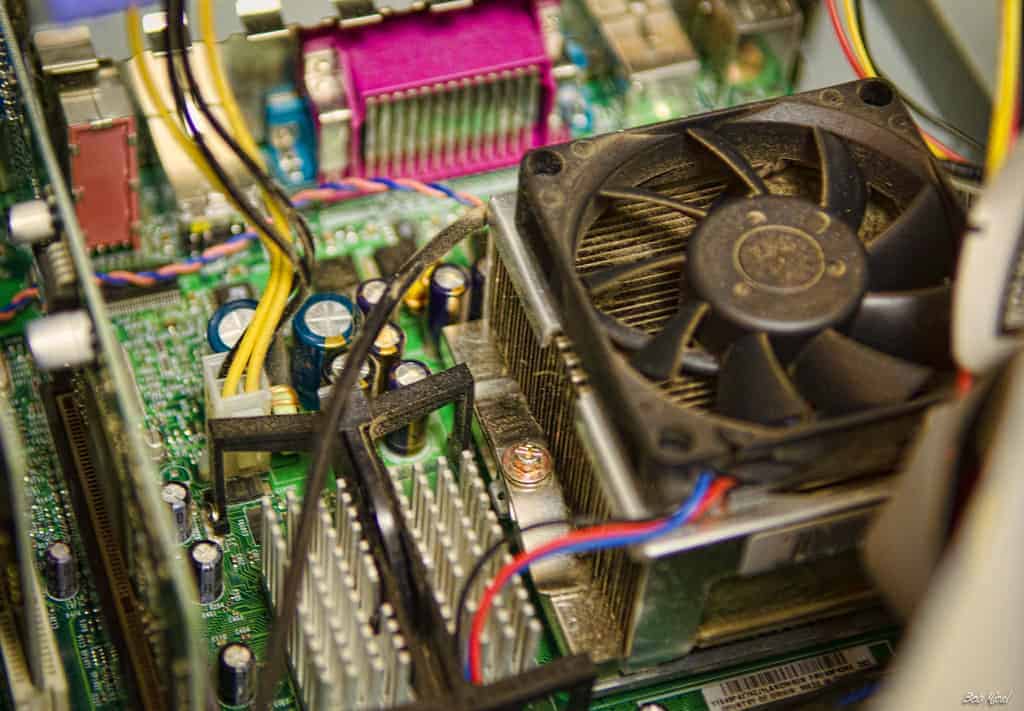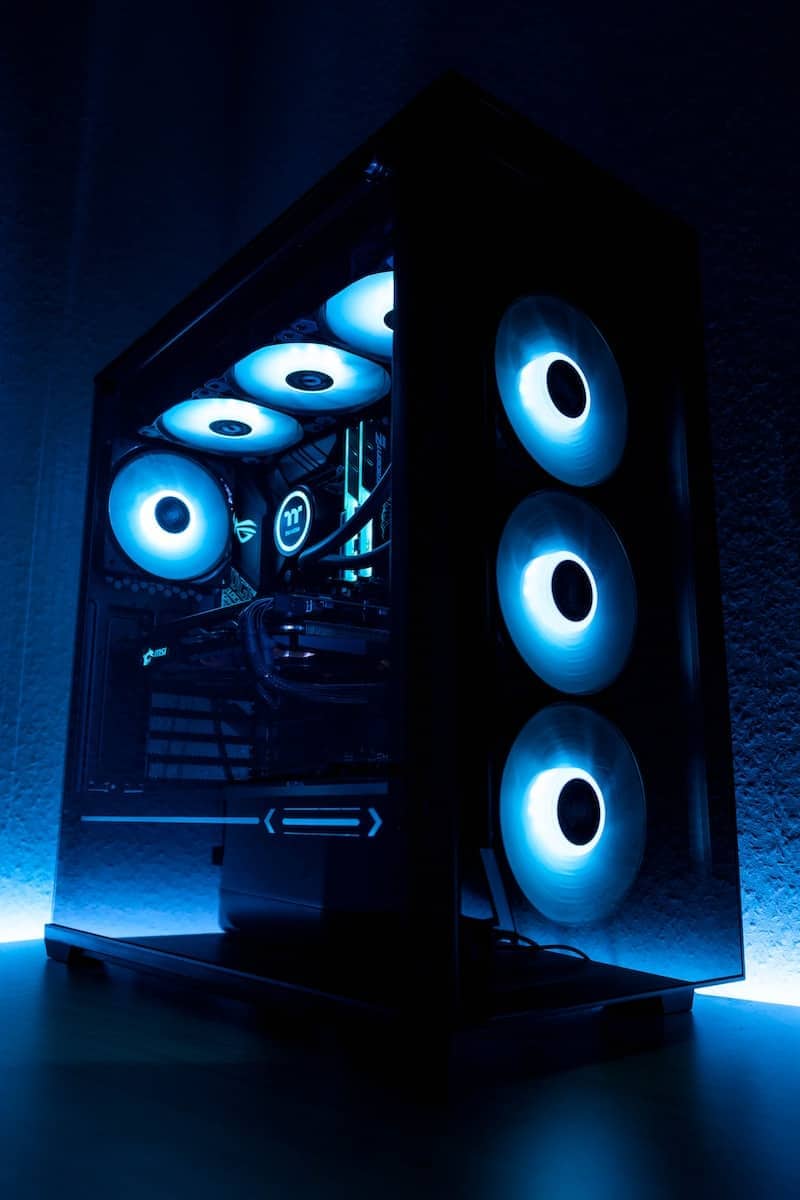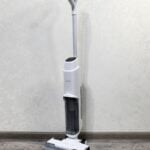Weird noises coming from your computer can be concerning as they often indicate underlying issues that need to be addressed. Noises such as buzzing, rattling, or grinding could mean that there are problems with your fans, hard drives, or other components. The first thing to do is pinpoint where the noise is originating from. Is it coming from the fan, hard drive, or somewhere else? Once you have identified the source of the noise, you can take steps to resolve the issue. Dust is a common culprit for causing noise as it can lead to fans working harder and producing more noise. A good initial step is to clean your computer. Start by turning it off and unplugging it. Then, open the case and use compressed air to remove any dust build-up. If this doesn’t solve the problem, you may need to inspect specific components or seek assistance from a professional expert.
Deciphering Computer Sounds: A Troubleshooting Guide

Identifying the Noise
Is it a whirring, clicking, grinding, or buzzing sound? Pinpointing the noise’s type and location can narrow down the potential causes. A whirring sound often originates from fans, while a clicking noise might signal a hard drive issue.
Common Culprits
- Fans: Overheating due to dust buildup or failing bearings can cause fans to spin faster and louder. Cleaning the fans or replacing them might be necessary.
- Hard Drive: A failing hard drive can produce clicking, grinding, or buzzing noises. Back up your data immediately and consider replacing the drive.
- Speakers: Sometimes, software or system glitches can trigger unexpected sounds from your speakers. Check your audio settings and recent installations.
- Power Supply: A faulty power supply unit (PSU) can emit a high-pitched whine or buzzing sound. It’s best to have a professional diagnose and replace a malfunctioning PSU.
- Other Components: Loose cables, vibrating components, or even a CD stuck in the drive can create unusual noises. Inspect the interior of your computer for any obvious issues.
Troubleshooting Tips
- Clean Your Computer: Dust can clog fans and vents, leading to overheating and noise. Use compressed air to carefully clean the interior and exterior of your computer.
- Check for Loose Connections: Ensure all cables and components are securely connected.
- Update Drivers: Outdated or incompatible drivers can sometimes cause unexpected sounds. Update your drivers to the latest versions.
- Monitor Temperatures: Use a temperature monitoring tool to check if your CPU or GPU is overheating.
- Run Diagnostics: Many computers have built-in diagnostic tools to check for hardware issues. Utilize these tools if available.
When to Seek Professional Help
If the noise persists or you suspect a hardware problem, it’s wise to seek professional help. A qualified technician can diagnose the issue accurately and recommend the appropriate repair or replacement.
Prevention is Key
Regular maintenance can prevent many hardware-related noises. Keep your computer clean, ensure proper ventilation, and avoid blocking the vents. Update your drivers and software regularly, and back up your data to avoid losing important files in case of a hardware failure.
Common Computer Noises and Possible Causes:
| Noise | Possible Causes |
|---|---|
| Whirring | Fans spinning faster due to overheating, dust buildup, or failing bearings. |
| Clicking | Failing hard drive, loose cable, or CD stuck in the drive. |
| Grinding | Hard drive failure. |
| Buzzing | Failing hard drive, power supply unit (PSU) issue, or speaker glitch. |
| High-pitched whine | Power supply unit (PSU) issue. |
| Beeping | BIOS error code (Refer to your motherboard manual for the specific code meaning). |
| Popping | Speakers experiencing a sudden surge in electrical current or a software glitch. |
| Static | Loose cable or interference from other electronic devices. |
Key Takeaways
- Strange noises often mean a computer needs cleaning or repair
- Identify the source of the noise before trying to fix it
- Regular cleaning can prevent many noise issues
Initial Troubleshooting Steps
Strange computer noises can stem from various sources. Finding the cause helps fix the problem quickly. The following steps will guide you through the process.
Identifying the Type of Noise
Listen closely to the noise your computer makes. A buzzing sound often points to a fan issue. Clicking noises may mean hard drive problems. Grinding sounds could be from a failing component.
Write down when the noise happens. Does it start when you turn on the computer? Or only during certain tasks? This info helps narrow down the cause.
Check if the noise changes when you move the computer. A rattling sound that stops when you shift the case may mean a loose part inside.
Basic Cleaning Procedures
Dust buildup is a common cause of computer noises. Clean your computer regularly to prevent this.
First, turn off and unplug your computer. Take it to a well-lit area. Open the case if you have a desktop.
Use compressed air to blow out dust. Hold the can upright and spray in short bursts. Focus on fans, vents, and other openings.
For laptops, blow air into the vents. Don’t open the case unless you’re comfortable with it.
Wipe down the outside of the case with a soft, dry cloth. Avoid liquid cleaners.
Examining Internal Components
If cleaning doesn’t help, check inside the computer. This step is easier with desktops than laptops.
Look at the fans. Make sure they spin freely. Listen for any grinding noises when they move.
Check for loose cables or parts. Gently push on components to see if anything moves that shouldn’t.
Inspect the hard drive. A clicking sound from this part could mean it’s failing. Back up your data right away if you hear this.
Look at the power supply fan. A buzzing noise often comes from here. If it’s not spinning, it may need replacement.
Advanced Diagnostic and Resolution
Strange computer noises often point to specific hardware issues. Finding the source can help fix the problem quickly. Here are some ways to pinpoint and solve noise issues.
Hardware Component Analysis
Open your computer case to check for loose parts. Make sure all cables are secure. Look for any objects that may have fallen inside. Check if fans are spinning freely. Clean out dust with compressed air.
Listen closely to pinpoint where the noise is coming from. A clicking hard drive may be failing. Grinding noises could mean bad bearings in a fan. Buzzing might be coil whine from the power supply or graphics card.
Test each part separately if possible. Unplug components one by one to isolate the issue. Replace any damaged parts. Consider upgrading noisy fans to quieter models.
Software and System Checks
High CPU or disk usage can cause extra noise. Open Task Manager to check for programs using lots of resources. End tasks that aren’t needed. Run a virus scan to check for malware causing high usage.
Update your drivers, especially for the graphics card. Old drivers can make fans work harder than needed. Check your BIOS settings. Many systems let you control fan speeds there.
Use monitoring software to track temperatures. Programs like Core Temp or MSI Afterburner show if parts are overheating. Adjust fan curves to find a balance of cooling and noise.
Long-Term Maintenance Strategies
Clean your computer every few months. Use compressed air to blow out dust. This helps airflow and keeps parts cool. Apply new thermal paste to the CPU every year or two.
Check screws and fittings regularly. Tighten any that have come loose. This stops rattling noises. Oil fan bearings with a drop of sewing machine oil if they start to make noise.
Consider upgrading to quieter parts. Solid state drives make no noise. Larger, slower fans can move the same air more quietly. Water cooling can be very quiet if set up right.
Keep your computer in a cool, clean space. This reduces strain on the cooling system. Always have good airflow around your PC. Check warranties on noisy parts. Some companies will replace them.
Frequently Asked Questions
Computer noises can be confusing. Here are some common questions about strange sounds from computers and laptops.
Why is my laptop producing a buzzing sound?
A buzzing laptop often means the fan is dirty or failing. Dust can make fans work harder and louder. Sometimes loose parts inside the laptop can vibrate and buzz. Check for dust buildup and clean the vents if needed.
What does it mean when my computer makes a buzzing noise on startup?
Buzzing on startup may point to hardware issues. It could be a failing hard drive or power supply. The noise may also come from fans spinning up. If it’s new or getting worse, have a tech look at it soon.
How can I identify and interpret the noises coming from my computer?
Different noises mean different things. Clicking often means hard drive trouble. Grinding points to fan problems. Beeps can signal hardware errors. Pay attention to when and where sounds come from to help find the cause.
How do I resolve strange sounds coming from my computer?
First, clean out dust with compressed air. Make sure all parts are secure. Update drivers and check for overheating. If sounds persist, get help from a repair shop. Don’t open the case unless you know what you’re doing.
What should I do if my computer consistently emits notification sounds?
Check your sound settings. A program may be sending too many alerts. Look in the taskbar for active apps. Adjust notification settings for each app. If it keeps happening, scan for malware that might cause fake alerts.
Why does my PC make loud noises when it is under heavy load, such as during gaming?
Heavy tasks make parts work harder. This causes more heat. Fans speed up to cool things down. They get louder as they go faster. If noise is sudden or very loud, check for overheating or failing parts.







